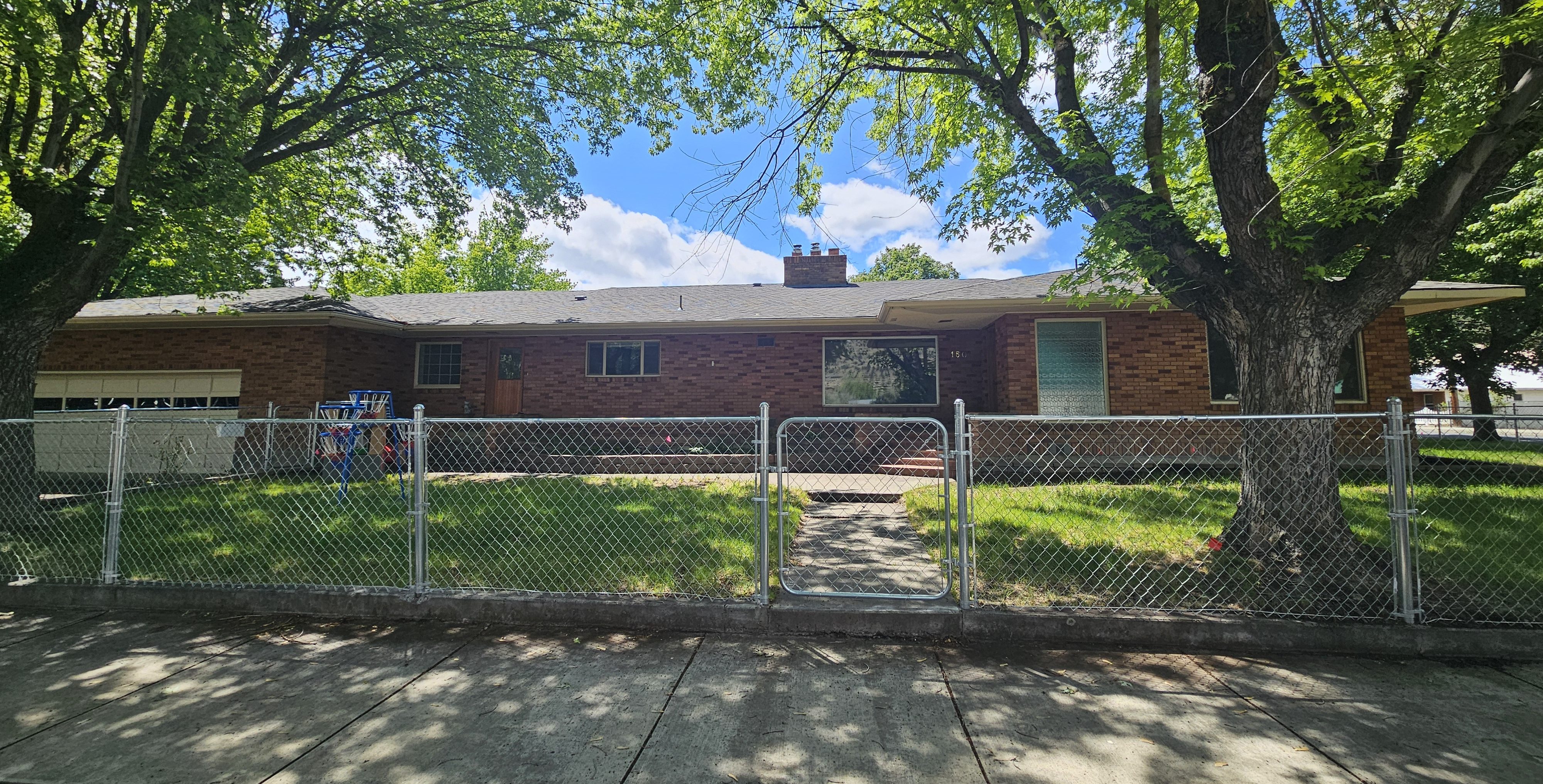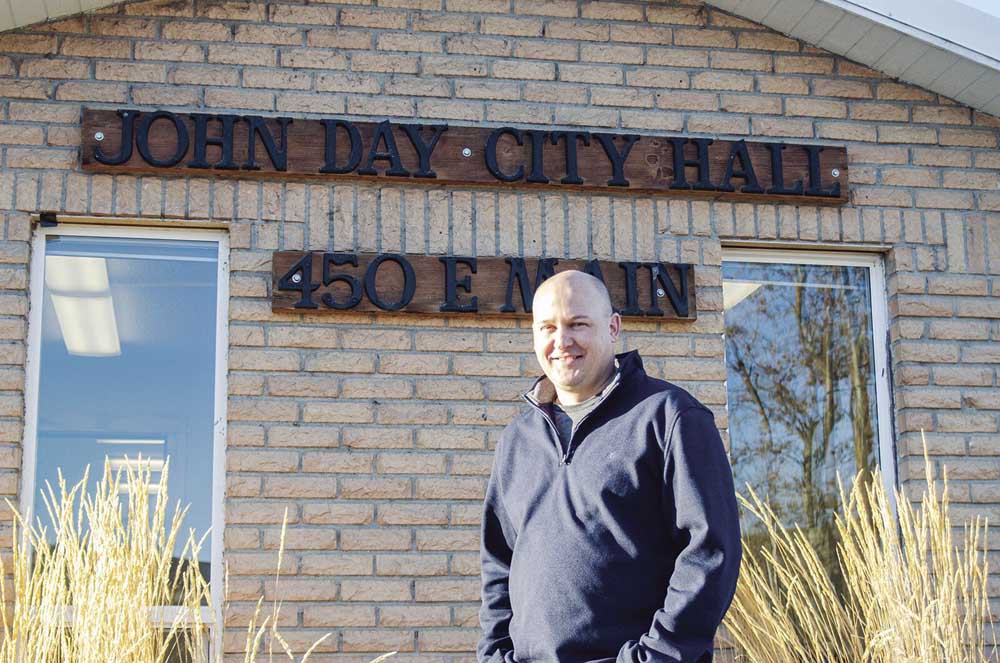Mental Health Court helps Baker County residents overcome mental health, addiction problems
Published 9:00 am Monday, December 16, 2024

- The Baker County Courthouse.
BAKER CITY — A program that started four and a half years ago in Baker County Circuit Court has helped eight local residents overcome mental health and substance abuse issues that contributed to their being charged with crimes.
They also had their charges either dismissed or reduced, or in some cases satisfied their probation requirements by graduating.
Circuit Court Judge Matt Shirtcliff, who has overseen the Mental Health Court program since its start in June 2020, said he is “really pleased” with its results.
None of the eight graduates, some of whom finished the program about four years ago, has been arrested since, he said. The community, then, also benefits from the program as people who frequently committed primarily property crimes become productive citizens.
Twelve people are enrolled in the voluntary program now. It is open to adults and juveniles, with specific eligibility requirements, including they live in Baker County and have a diagnosed mental health issue.
Shirtcliff said people charged with serious violent crimes are not eligible.
“Some people just need to go to prison because they’re dangerous,” he said.
The judge meets with participants during public sessions in circuit court — at least twice per month for the first 30 to 60 days, once a month for about 90 days, and then every other month for the remainder of the program.
The Mental Health Court program is designed to last about one year and includes four phases, although the duration can be extended depending on an individual’s situation.
Shirtcliff said participants who don’t follow the rules, which include random drug testing, can face sanctions, including dismissal from the program.
Of the 31 people who have been accepted since June 2020, 10 failed to graduate.
“It’s a tough program,” Shirtcliff said.
People who graduate can have pending criminal charges dismissed or felonies reduced to misdemeanors.
Participants who have been sentenced or are awaiting sentence, and who are on probation or will be, can complete their probation by finishing the program.
“These are people who would almost certainly have failed on probation again,” Shirtcliff said. “We’re trying to get them on the right track, which reduces the burden on the community, in terms of crime, and on the parole and probation department.”
Starting the program
Shirtcliff, who has been circuit court judge since Nov. 1, 2019, said when he was contemplating creating a specialty court, similar to the drug court that operated in the past, he talked with local officials about the biggest challenges.
He said he learned many, even most, local residents who are frequently arrested for property crimes, such as theft or trespassing, have mental health issues. In most cases those people also abuse drugs or alcohol, he said. Some are homeless.
“These are the people who keep showing up in the (legal) system,” Shirtcliff said. “This program is for them.”
He said the Mental Health Court works to interrupt the cycle of arrests and convictions by encouraging people to complete a mental health and, if needed, substance abuse treatment program through New Directions Northwest.
New Directions is one of the partners in Mental Health Court. Others are the Baker County Parole and Probation Department, Baker County Juvenile Department, Baker County District Attorney’s office and public defenders.
The latter play a key role, Shirtcliff said, as they can advocate for clients who might be good candidates for the program.
Representatives from each organization attend the biweekly Mental Health Court sessions and give Shirtcliff updates on how people are progressing. Shannon McGaughey, who works for the circuit court, coordinates the program.
Shirtcliff said a key part of Mental Health Court is helping participants find stable housing where they are less likely to have access to drugs. To that end, the program has received grants to give people temporary stipends to help pay rent. The program received $2,500 from the Leo Adler Community Fund in 2022, and $4,000 in 2023. The largest grant, for $70,000, was from the Oregon Criminal Justice Commission in 2023.
These payments are supplementary, though — Shirtcliff said participants are encouraged, during the final phase, to find a job.
McGaughey said the money also can help clients cover medical costs not covered by insurance, buy gasoline and pay for gift cards for people who reach program milestones.
Why it works
Debbi Wray, a deputy with the Baker County Parole and Probation Department, said Mental Health Court helps people overcome a variety of challenges.
“We’re not just treating the addiction or mental health, it’s treating the whole person,” she said.
She said the team approach, with representatives from New Directions, the parole and probation department, and prosecutors and defense attorneys among others, ensures each person in the program has a plan tailored to his or her individual circumstances.
Wray said the program’s consistent requirements also are important. To graduate, participants have to attend treatment sessions, go to court as scheduled and meet other mandates.
“The expectations are very clear and concise with each phase,” Wray said. “There is accountability.”
The ultimate responsibility, though, lies with the clients, she said.
“It really is a choice,” Wray said. “People really do have to step up and make a genuine internal change. You can’t fake it.”
Baker County District Attorney Greg Baxter, who reviews applications for Mental Health Court, said the program is not appropriate for some people. But he said it is a good program for people who benefit from consistent attention and oversight.
“It allows people who need that kind of direction and more structure and more specialized treatment,” he said. “A lot of times people do benefit from seeing the judge often.”
Kelli Wright, outpatient mental health director for New Directions Northwest, said Mental Health Court offers a different type of motivation for people to deal with mental health and addiction troubles.
“It’s pretty exciting,” she said. “It’s pretty powerful to have the judge cheer you on and encourage you.”
Wright also said the team approach, with representatives from multiple agencies all trying to help participants succeed, is valuable.
“Everybody is working for the same goal,” she said.
A court session
Jestin Harding said the special court program in Baker County has helped him get a job, a home and a future he is confident will be free of the drug abuse and criminal charges he has amassed over the past two decades.
He also lost 17 teeth.
But he won’t miss the molars and bicuspids that have pained him for years.
Harding, 41, and three other participants gathered in the courtroom Nov. 4, to meet with Shirtcliff. Harding told the judge he was scheduled to have 17 teeth extracted Nov. 7 in the Tri-Cities.
“I’m definitely looking forward to being able to chew again,” Harding said.
People who finish all four phases of Mental Health Court, which typically takes at least a year, can have criminal charges dismissed. Others can complete their probation by graduating from the program.
Harding enrolled in April 2024, after he pleaded guilty to two counts of aggravated harassment and one count of first-degree criminal mischief. He was arrested on Feb. 7 in Baker City for hitting two vehicles with a wooden board studded with nails. Harding also admitted spitting on two Baker City Police officers who arrested him.
During the court session, Shirtcliff congratulated Harding on progressing through the first two phases and most of the third.
“You’re done super good with your treatment,” Shirtcliff said. “Keep up the good work.”
Shirtcliff addressed the participants by their first name rather than as “mister” as he would in a regular hearing. The judge said he strives to create a more relaxed atmosphere during Mental Health Court because its purpose is different than, say, a trial.
All participants have been in court on criminal charges, and some have made a dozen or more appearances, Shirtcliff said. They’re apt to have a negative attitude about judges and the legal system in general, he said.
His goal with Mental Health Court is to reverse that, to convince participants that he and the other members of the court team want to help them improve their lives rather than punish them.
The judge questioned each participant and required they talk about their progress. He encouraged them to mention any concerns they have.
He applauded Harding for saving enough money through his job as a house painter to pay for the dental work. Shirtcliff noted, though, that that expense has made it difficult for Harding to pay his rent next month. The judge said the Mental Health Court will pay the rent.
Worth the risk
Harding after the court session said enrolling in the program was a risk. He said he could have been sentenced to 32 months in prison.
But if his probation is revoked, which could happen if he fails to graduate from Mental Health Court, Harding could be sentenced to four years in prison, according to court records.
Harding, who said he was first arrested at age 19, said he agreed to enroll because he is “tired” of the cycle of arrests and convictions. He has been sentenced several times since 2012 to spend a month or less in the Baker County Jail,including for possession of methamphetamine and vehicle theft.
In December 2018 he was sentenced to two years in prison for being a felon in possession of a firearm.
Mental Health Court, Harding said, “gave me the chance” to deal with his addiction and mental health problems.
He said another inmate at the Baker County Jail told him about the program, and his court-appointed attorney, Will Thomson, helped him apply.
In the seven months since, Harding said he has gotten the painting job and found stable housing. More important, he said, he has “stayed clean the whole time.”
His sobriety started when he was arrested in February. After spending two months in the jail, he was released in early April.
During the first phase of Mental Health Court, Harding said he attended two addiction classes each week at New Directions Northwest. He also met weekly with a mental health counselor, and attended Mental Health Court sessions every other week, as the program requires.
“I was busy but I was also staying out of trouble,” Harding said.
He uses one word to describe the program’s requirements, including meeting with Shirtcliff regularly: “Accountability.”
“It’s an incentive,” Harding said.
He’s optimistic that, unlike his previous attempts over the years, he will stay sober.
“I’m pretty sure I’ve made it over the hump,” Harding said.
He admitted, though, he has had to make difficult decisions this year, including ending relationships with longtime friends.
They are still “in the drug world,” Harding said, and he knew he couldn’t fulfill his goals if he continued to spend time with them.
“It was a choice, friends or my future,” he said. “But I’ve got to do this for me. I’m dedicated to it, to the changes I’ve made.”
“These are people who would almost certainly have failed on probation again. We’re trying to get them on the right track, which reduces the burden on the community, in terms of crime, and on the parole and probation department.”
— Judge Matt Shirtcliff, Baker County Circuit Court





